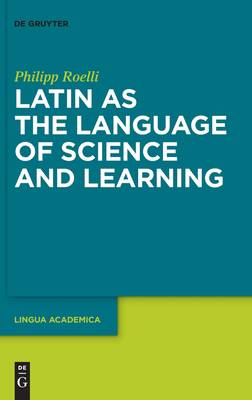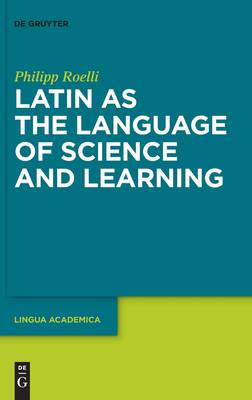
- Afhalen na 1 uur in een winkel met voorraad
- Gratis thuislevering in België vanaf € 30
- Ruim aanbod met 7 miljoen producten
- Afhalen na 1 uur in een winkel met voorraad
- Gratis thuislevering in België vanaf € 30
- Ruim aanbod met 7 miljoen producten
Zoeken
Omschrijving
This book investigates the role of the Latin language as a vehicle for science and learning from several angles. First, the question what was understood as 'science' through time and how it is named in different languages, especially the Classical ones, is approached. Criteria for what did pass as scientific are found that point to 'science' as a kind of Greek Denkstil based on pattern-finding and their unbiased checking. In a second part, a brief diachronic panorama introduces schools of thought and authors who wrote in Latin from antiquity to the present. Latin's heydays in this function are clearly the time between the twelfth and eighteenth centuries. Some niches where it was used longer are examined and reasons sought why Latin finally lost this lead-role. A third part seeks to define the peculiar characteristics of scientific Latin using corpus linguistic approaches. As a result, several types of scientific writing can be identified. The question of how to transfer science from one linguistic medium to another is never far: Latin inherited this role from Greek and is in turn the ancestor of science done in the modern vernaculars. At the end of the study, the importance of Latin science for modern science in English becomes evident.
Specificaties
Betrokkenen
- Auteur(s):
- Uitgeverij:
Inhoud
- Aantal bladzijden:
- 659
- Taal:
- Engels
- Reeks:
- Reeksnummer:
- nr. 7
Eigenschappen
- Productcode (EAN):
- 9783110745757
- Verschijningsdatum:
- 6/12/2021
- Uitvoering:
- Hardcover
- Formaat:
- Genaaid
- Afmetingen:
- 156 mm x 234 mm
- Gewicht:
- 1097 g

Alleen bij Standaard Boekhandel
+ 335 punten op je klantenkaart van Standaard Boekhandel
Beoordelingen
We publiceren alleen reviews die voldoen aan de voorwaarden voor reviews. Bekijk onze voorwaarden voor reviews.








